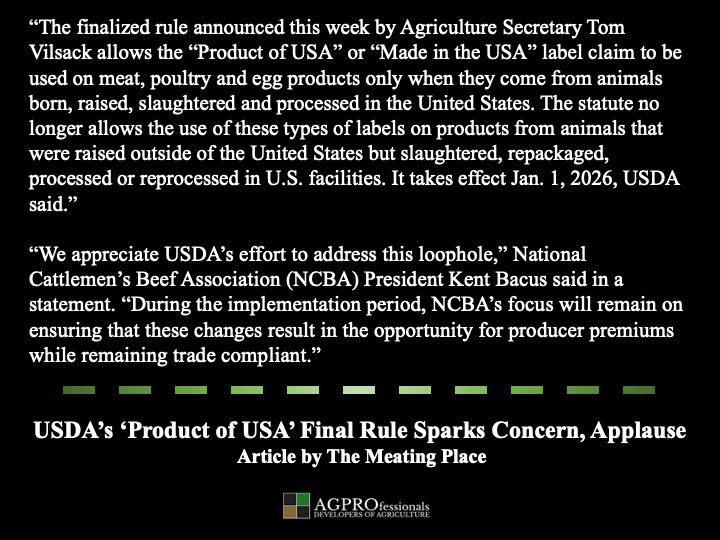Article first published on March 12, 2024
This week’s finalization of the voluntary “Product of the USA” label claim is prompting concern from the Canadian government even as U.S. trade groups expressed support for specific changes to the previous policy.
The finalized rule announced this week by Agriculture Secretary Tom Vilsack allows the “Product of USA” or “Made in the USA” label claim to be used on meat, poultry and egg products only when they come from animals born, raised, slaughtered and processed in the United States. The statute no longer allows the use of these types of labels on products from animals that were raised outside of the United States but slaughtered, repackaged, processed or reprocessed in U.S. facilities. It takes effect Jan. 1, 2026, USDA said.
Canada’s Agriculture Minister Lawrence MacAulay and International Trade Minister Mary Ng issued a joint statement saying that the final rule does not consider how closely the meat and livestock sectors in two countries currently work together. The officials noted that the current relationship allows producers, processors and consumers on both sides of the border to benefit from efficient markets and ensuring a reliable supply of high-quality products.
They intend to raise the issue at a meeting of agricultural ministers from Canada, Mexico and the United States that’s scheduled to be held in Colorado next month.
Meanwhile, U.S. beef industry organizations applauded the USDA announcement.
"We appreciate USDA’s effort to address this loophole,” National Cattlemen’s Beef Association (NCBA) President Kent Bacus said in a statement. “During the implementation period, NCBA’s focus will remain on ensuring that these changes result in the opportunity for producer premiums while remaining trade compliant.”
Meanwhile, U.S. Cattlemen’s Association (USCA) President Justin Tupper said his organization is “thrilled that the final rule finally closes this loophole by accurately defining what these voluntary origin claims mean.”

